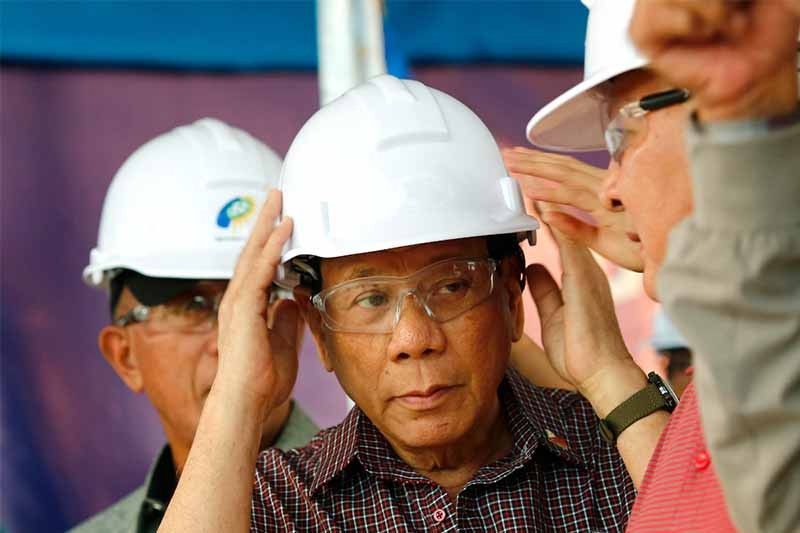Robredo questions timing of Philippines' withdrawal from ICC

MANILA, Philippines — The decision of President Rodrigo Duterte to withdraw Manila’s signature on the international treaty that created the International Criminal Court will have serious repercussions, including the removal of a “safety net” that will protect the Filipino people from abusive leaders, the country’s vice president said Thursday.
Leni Robredo, who belongs to the opposition Liberal Party, also questioned the timing of Duterte’s decision to withdraw its ratification of the Rome Statue that created the International Criminal Court, where he might face a possible case for the high number of deaths in his illegal drugs crackdown.
In making the announcement, Duterte cited the perceived bias of some players in the international community, including United Nations officials, against him and his brutal crackdown on illegal drugs.
Robredo said the Philippines was removing a “safety net” that the Filipino people could turn to if their leaders became abusive and local institutions were rendered unable or unwilling to probe rights encroachments.
She added that the withdrawal could impact the country’s international standing and its ability to honor its commitment to international agreements and human rights.
“The most significant (implication), we are removing, this (treaty) is like a safety net. If there is an abusive official, our being an ICC signatory, acts like a safety net if our officials don’t act on the abuses in the country. We have an institution to turn to,” she said in an interview at the turnover of a two-classroom building for Buhi Central School in her home province of Camarines Sur.
She said that Duterte’s decision to withdraw from what she termed as a “shining moment” for the country was “worrying.”
Robredo said that it seemed that like the country was leaving the international treaty just because we were about to be investigated.
“Are we saying that we are afraid of the investigation?” she asked.
A prosecutor of the international tribunal, Fatou Besouda, announced in early February that she was initiating a preliminary examination of the claims of extrajudicial killings in the Philippines.
Duterte, in explaining his decision to withdraw, cited this as another reason for his decision as the announcement created the impression that he was about to be tried.
This marked a stunning about-face by the mercurial Duterte, who repeatedly challenged the ICC to indict him and bragged that he was willing to go to jail to defend his campaign that saw thousands killed in its wake.
Despite the withdrawal, this would not remove the country’s responsibilities under the Rome Statute to cooperate in any ICC proceedings or trials.
Robredo, a lawyer, said that upon the Senate’s ratification of the treaty, it became part of the country’s laws, a subtle dig at the government’s argument that the Rome Statute was not enforceable in the Philippines in the first place because it failed its publication requirement.
Duterte and Chief Presidential Legal Counsel Salvador Panelo emphasized this requirement in their defense of the Philippine position, but this was not among the requisite steps in the treaty-making process cited by the 2005 Supreme Court decision in Pimentel vs Executive Secretary.
- Latest
- Trending
































